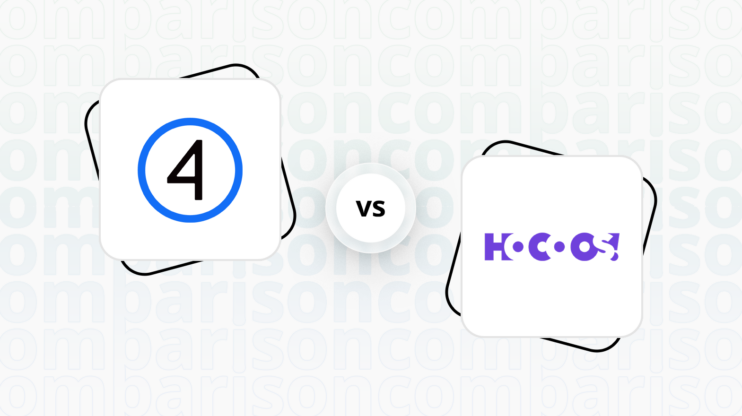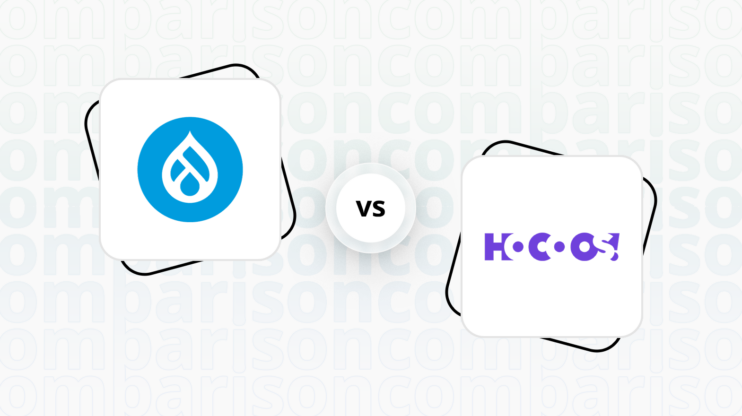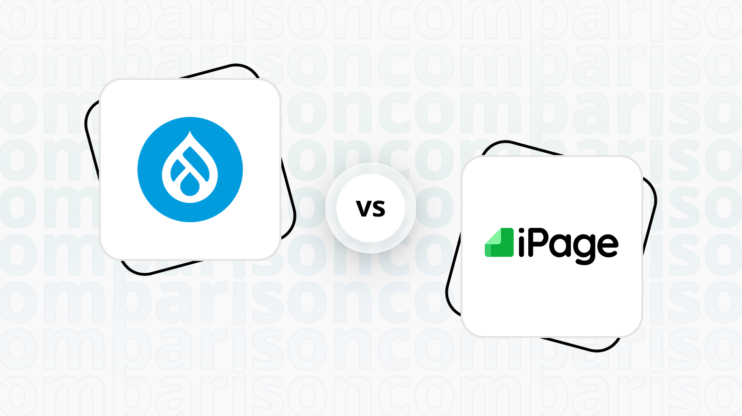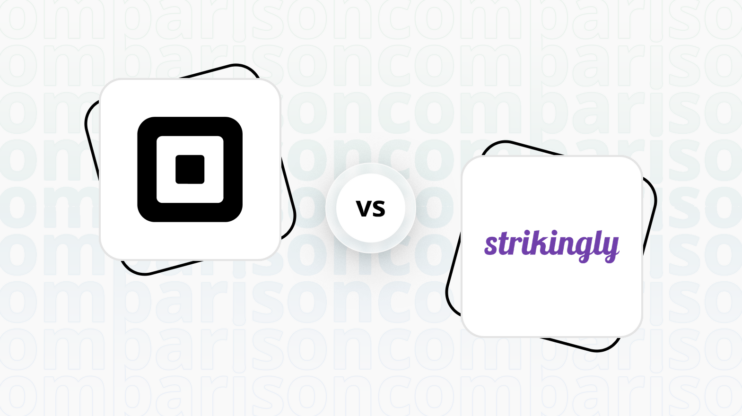BlueHost vs Zenfolio: Final verdict
BlueHost and Zenfolio both offer unique strengths, catering to different user needs.
-
BlueHost (Overall Grade: 6.8/10)
is a versatile website builder and hosting platform that integrates seamlessly with WordPress. It offers a wide range of customizable templates, robust ecommerce capabilities through WooCommerce, and comprehensive hosting options. BlueHost excels in ease of use, design functionalities, and customer support, making it a solid choice for users seeking a flexible and powerful website builder. -
Zenfolio (Overall Grade: 6.4/10)
is tailored specifically for photographers and visual artists, providing elegant, customizable templates and integrated ecommerce features for selling prints and digital downloads. While it may not offer the same level of versatility as BlueHost, Zenfolio’s specialized tools for marketing, client proofing, and secure photo storage make it an excellent choice for professionals in the photography industry.

|

|
|
|---|---|---|
|
Design functionalities & templates |
7.2 |
6.8 |
|
Ease of use |
8.2 |
6.3 |
|
Ecommerce |
6.8 |
6.3 |
|
Website Editors |
7.3 |
7.6 |
|
Product testing options |
6.2 |
8.4 |
|
Price |
7.2 |
8.2 |
|
Hosting quality |
8.0 |
5.7 |
|
Website speed optimization |
6.5 |
5.2 |
|
Plugins and integrations |
9.1 |
6.5 |
|
Marketing features |
7.3 |
6.1 |
|
Customer support |
7.6 |
6.7 |
|
Security |
8.3 |
8.0 |
|
AI capabilities |
1.5 |
2.4 |
|
User Management |
4.4 |
2.8 |
Which one is the best for ecommerce: BlueHost or Zenfolio?
 6.8
6.8
 6.3
6.3
Verdict
: BlueHost and Zenfolio cater to different ecommerce needs. BlueHost is more versatile for general online stores, while Zenfolio is specialized for photographers and visual artists.
-
BlueHost
: With its integration with WooCommerce, BlueHost offers a comprehensive ecommerce toolset, including product listings, shopping carts, secure payment gateways, and shipping options. This makes it a versatile choice for a wide range of online businesses. However, when comparing BlueHost vs Zenfolio, BlueHost’s ecommerce features are more suited for general online stores rather than niche markets. -
Zenfolio
: Tailored specifically for photographers and visual artists, Zenfolio provides an integrated ecommerce platform for selling prints, digital downloads, and other products. It offers customizable templates and tools for marketing, client proofing, and secure photo storage, making it ideal for managing and growing a photography business online. However, it may not be as versatile as BlueHost for other types of ecommerce businesses.
Which one is the best for informational and business websites?
 7.5
7.5
 6.9
6.9
Verdict
: BlueHost is the better choice for creating informational and business websites due to its versatility, ease of use, and extensive customization options. Zenfolio, while excellent for photographers, may not offer the same level of flexibility for broader business needs.
-
BlueHost
: BlueHost scores 7.5 for informational and business websites, making it a strong contender. It offers a user-friendly website builder integrated with WordPress, providing access to thousands of themes and plugins. The drag-and-drop interface and variety of hosting plans make it suitable for a wide range of users, from personal blogs to large online businesses. BlueHost’s extensive customization options and ease of use make it ideal for creating professional-looking informational websites. -
Zenfolio
: Zenfolio scores 6.9 and is tailored specifically for professional photographers and visual artists. It offers elegant, mobile-friendly templates and integrated e-commerce capabilities for selling photography products. While Zenfolio excels in providing tools for marketing, client proofing, and secure photo storage, it may not offer the same level of versatility and customization as BlueHost for broader business needs. Zenfolio is best suited for those in the photography industry looking to showcase and sell their work online.
BlueHost vs Zenfolio: Detailed comparison
Design functionalities & templates
Design FunctionalitiesRepresents how well each platform allows for creative design and customization of websites.Score Components:
- Template Variety (30%): Range and quality of design templates.
- Customization (30%): Flexibility and options for design alterations.
- User Interface (20%): Ease and intuitiveness of the design process.
- Responsiveness (10%): Adaptability to different devices and screen sizes.
- Innovation (10%): Unique design features and tools.
 7.2
7.2
 6.8
6.8
🏆
Winner: BlueHost.
If you’re looking for a platform that offers more templates and designs, and integrates with WordPress for more customization options, BlueHost is the preferred choice.
BlueHost’s WordPress website builder offers over 300 pre-installed templates and designs to cater to the diverse needs of its users, ensuring that there’s something for everyone, regardless of the niche or industry. With hundreds of customizable templates available, users can easily find a design that aligns with their vision and brand identity. These templates are designed to be responsive and SEO-friendly, enhancing the user experience and visibility of the websites. From simple blog layouts to complex ecommerce designs, BlueHost provides a comprehensive selection to help users create professional-looking websites with ease.
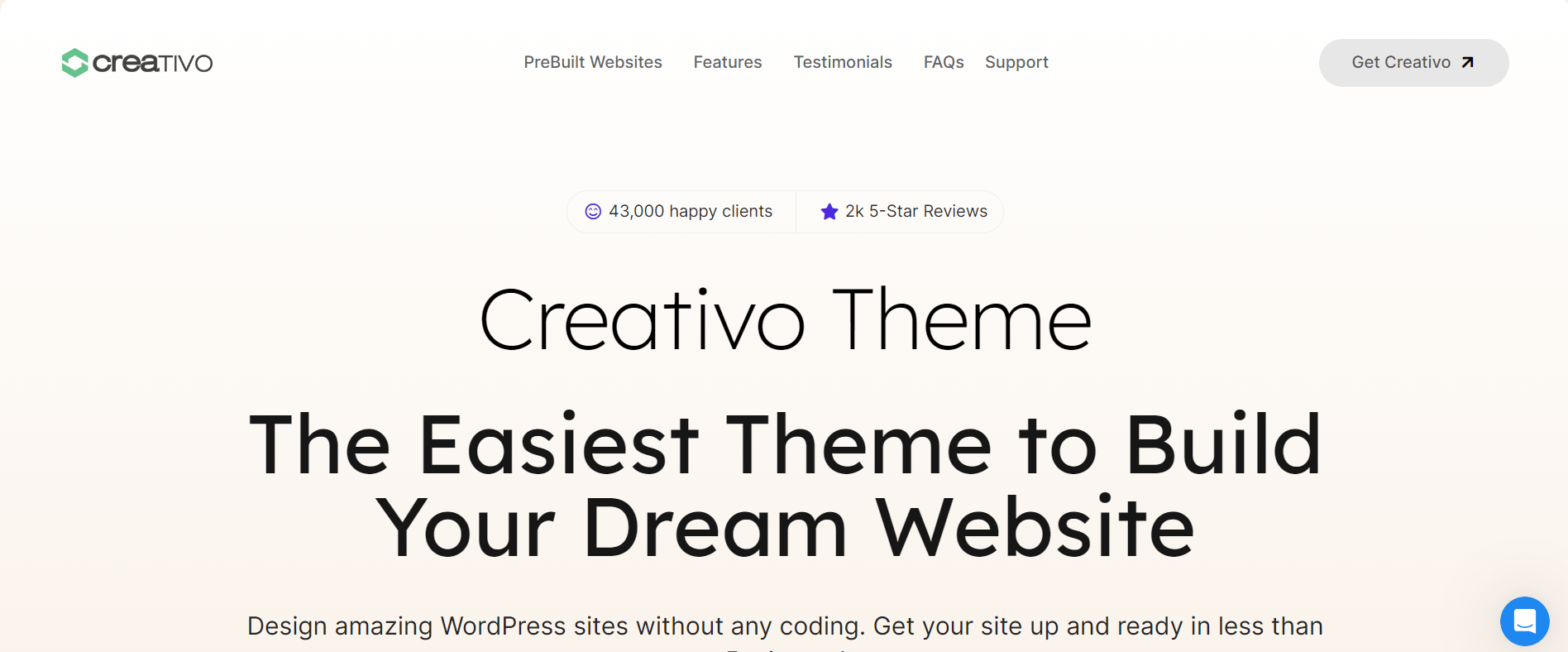
Compared to BlueHost, Zenfolio offers a variety of customizable templates and features specifically tailored for photographers, with a focus on showcasing and selling their work. While it provides several customization options, including blocks for different layouts and styles, it may not offer as much versatility outside of photography-specific needs. Compared to broader website builders like Wix, Zenfolio is more niche-focused, catering well to photographers but potentially limiting for those seeking extensive customization or business tools beyond photography.
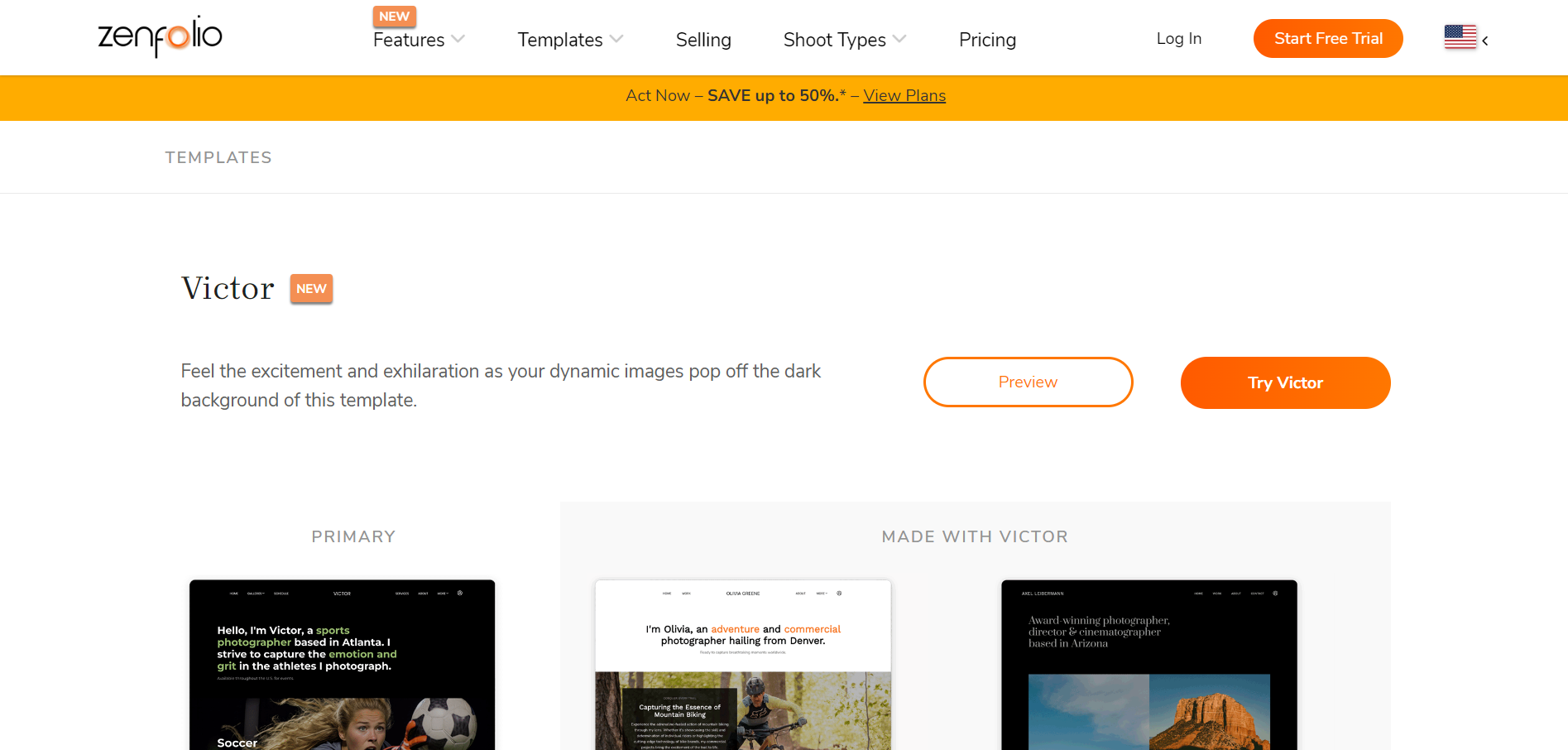
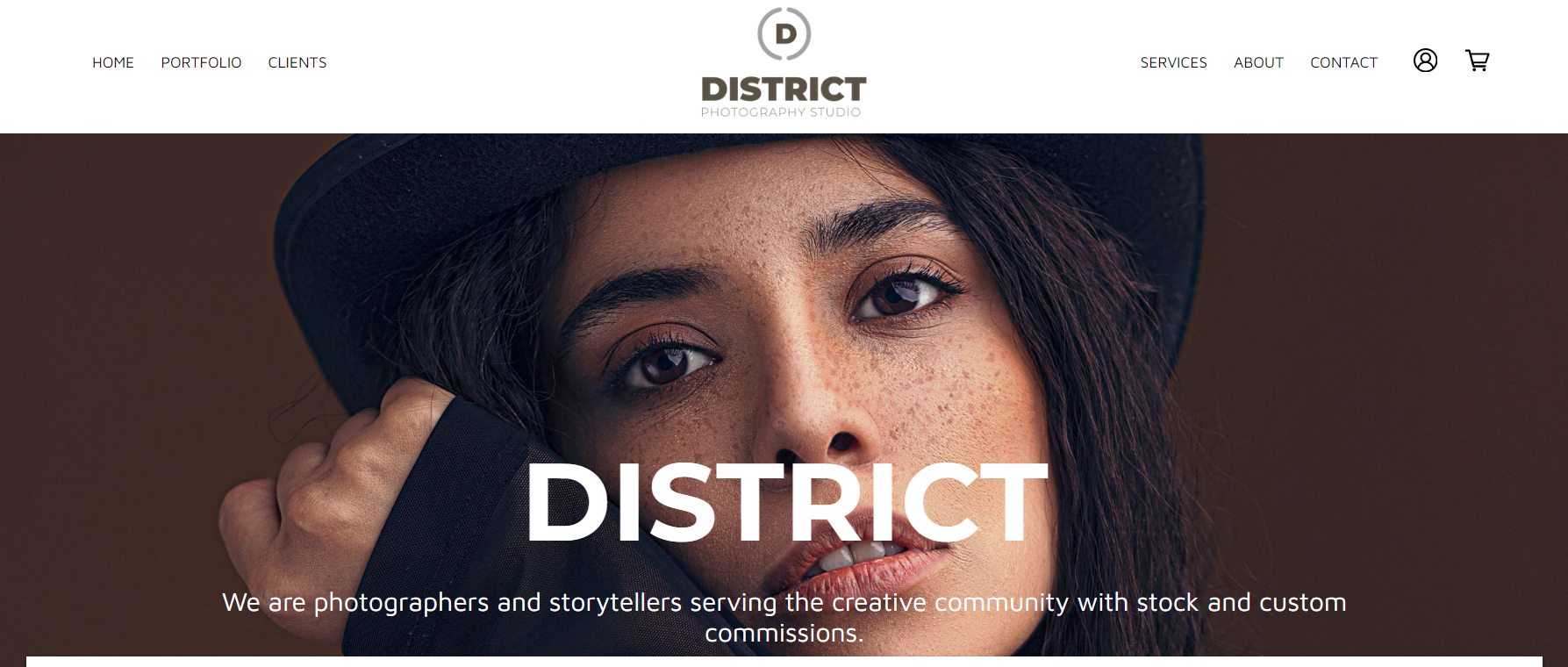
Get a head start on website creation with AI
Create a custom website tailored to your business needs 10X faster with 10Web AI Website Builder!
Ease of use
Ease of useReflects the platform’s overall user-friendliness.Score
Components:
- Learning curve (40%): Quickness and ease of getting started.
- Interface design (30%): Simplicity and intuitiveness of layout.
- User guidance (20%): Quality of tutorials and support.
- Flexibility (10%): Adaptability to various user skills.
 8.2
8.2
 6.3
6.3
🏆 Winner: BlueHost
. Scoring 8.2, BlueHost is designed with simplicity in mind, making it highly accessible for users of all skill levels. Zenfolio, with a score of 6.3, offers a specialized platform for photographers, but it has limitations in design flexibility and a complex dashboard. If ease of use is a priority, BlueHost is the clear winner in this category.
Learning Resources
🏆 Winner: BlueHost
. BlueHost’s WordPress Academy offers a wide range of free, comprehensive learning resources developed by WordPress experts, aimed at users of all levels. Zenfolio, on the other hand, offers a set of tutorials and articles in their help center, but users have expressed a desire for more comprehensive learning resources.
For ecommerce
EcommerceMeasures the platform’s effectiveness in supporting online business activities.Score Components:
- Ecommerce themes and templates (20%): Variety and design of templates.
- Product management (25%): Ease of managing and organizing products.
- Payment options (25%): Variety and convenience of payment methods.
- Ecommerce features (20%): Features for managing an ecommerce store.
- Integration (10%): Compatibility with external e-commerce tools and services.
 6.8
6.8
 6.3
6.3
BlueHost and Zenfolio both offer ecommerce capabilities, but they cater to different needs. BlueHost, with its integration with WooCommerce, provides a comprehensive toolset for online merchants, including product listings, shopping carts, secure payment gateways, shipping options, and tax calculations. Zenfolio, on the other hand, is tailored for photographers and visual artists, offering an integrated ecommerce platform for selling prints, digital downloads, and other items directly from their online stores.

|

|
|
|---|---|---|
|
Ecommerce themes and templates |
6.5 |
7.0 |
|
Product page customization |
7.0 |
7.2 |
|
Payment processing and commissions |
6.8 |
6.5 |
|
POS capabilities |
0.0 |
3.0 |
|
Payment gateways |
7.5 |
6.8 |
|
Product numbers |
6.0 |
5.0 |
|
Additional ecommerce features |
6.5 |
6.5 |
BlueHost ecommerce features:
- Product Listings
- Shopping Carts
- Secure Payment gateways
- Shipping Options and Tax Calculations
- Inventory Management
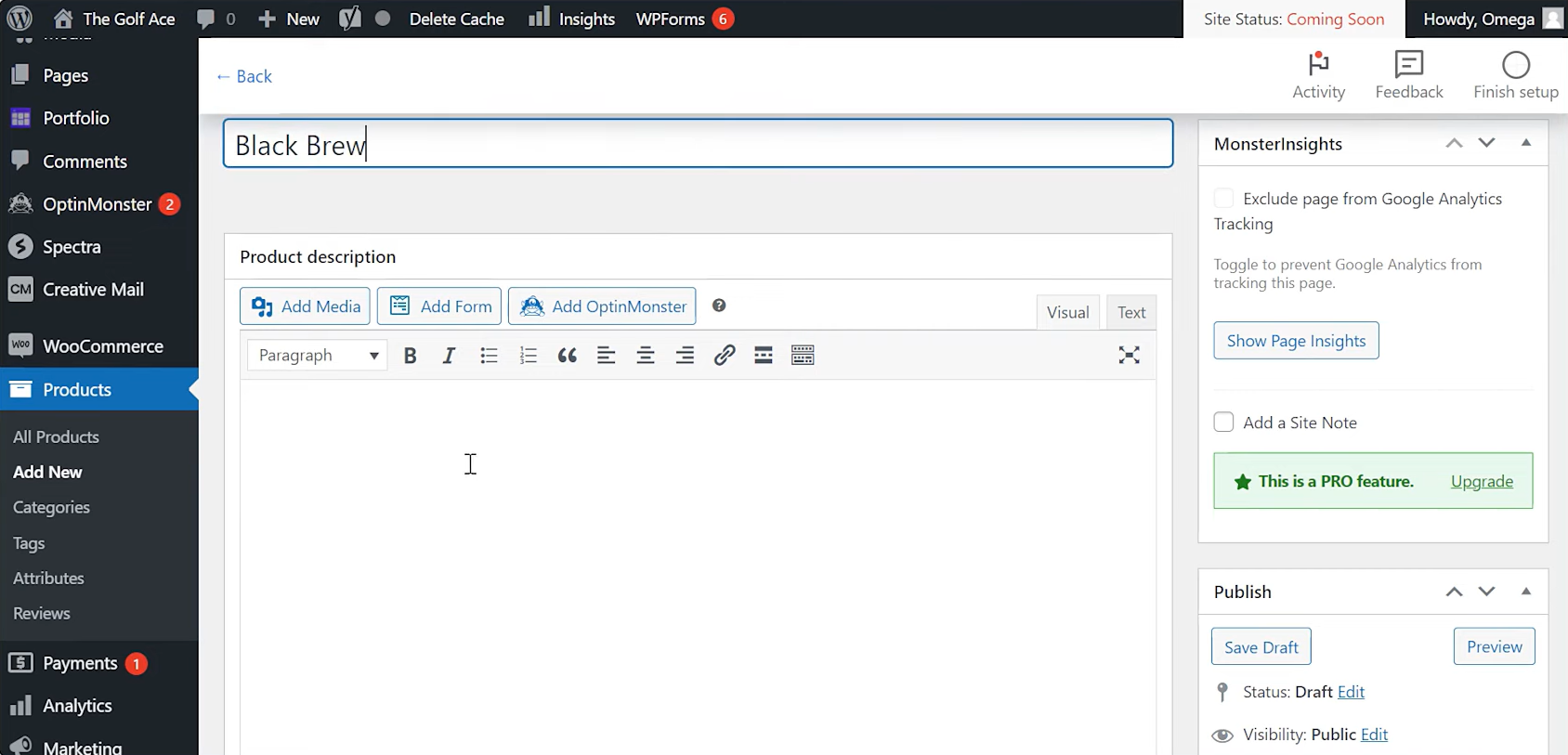
Zenfolio ecommerce features:
- Multiple Currency Support
- Discount Coupons
- Order management
- Gift Certificates
- Tax management
Ecommerce themes & templates
BlueHost’s website builder for eCommerce provides a selection of specific templates designed to streamline the creation of online stores. These templates are optimized for sales, featuring designs that accommodate product galleries, shopping carts, and checkout processes. Zenfolio, on the other hand, provides customizable website templates with integrated e-commerce features for photographers, designed to showcase and sell their work across various genres.
Product page customization
BlueHost’s website builder offers robust customization features for product pages, allowing users to tailor product details like titles, descriptions, images, and pricing according to their preferences. It supports the creation of product variants and options, facilitating the sale of items with multiple choices such as size, color, and material directly from the product page. Zenfolio also allows for detailed product pages with descriptions, images, and options such as size or color. This allows for each product page to be adjusted to clearly display its unique attributes.
Payment processing
BlueHost integrates with WooCommerce, a platform that facilitates integration with various payment gateways like PayPal and Stripe. While BlueHost doesn’t impose transaction fees, the payment gateways might. Zenfolio supports Stripe and PayPal for payment processing, integrating them seamlessly into its platform. The platform charges a commerce fee of 7% per order (excluding tax and shipping) and a payment processing fee for transactions through Stripe or PayPal.
Website Editors
Website EditorsEvaluates the platforms’ website building and editing capabilities.Score Components:
- Customization tools (40%): Range and power of editing features.
- Editor usability (30%): User experience within the editor.
- Design flexibility (20%): Freedom in layout and design changes.
- Update and maintenance ease (10%): Simplicity of updating and maintaining the site.
 7.3
7.3
 7.6
7.6
🏆
Winner: Zenfolio
. Zenfolio, with a score of 7.6, offers an intuitive, no-coding-required website builder tailored for photographers, featuring drag-and-drop customization, a wide array of templates, and a powerful Custom Layout block for personalized designs. Its integrated eCommerce capabilities enable selling both digital and physical photography products, supported by comprehensive security features for protecting photographers’ work. Additionally, Zenfolio provides tools for SEO, marketing, photo and video hosting, client booking, and management, backed by award-winning customer support.
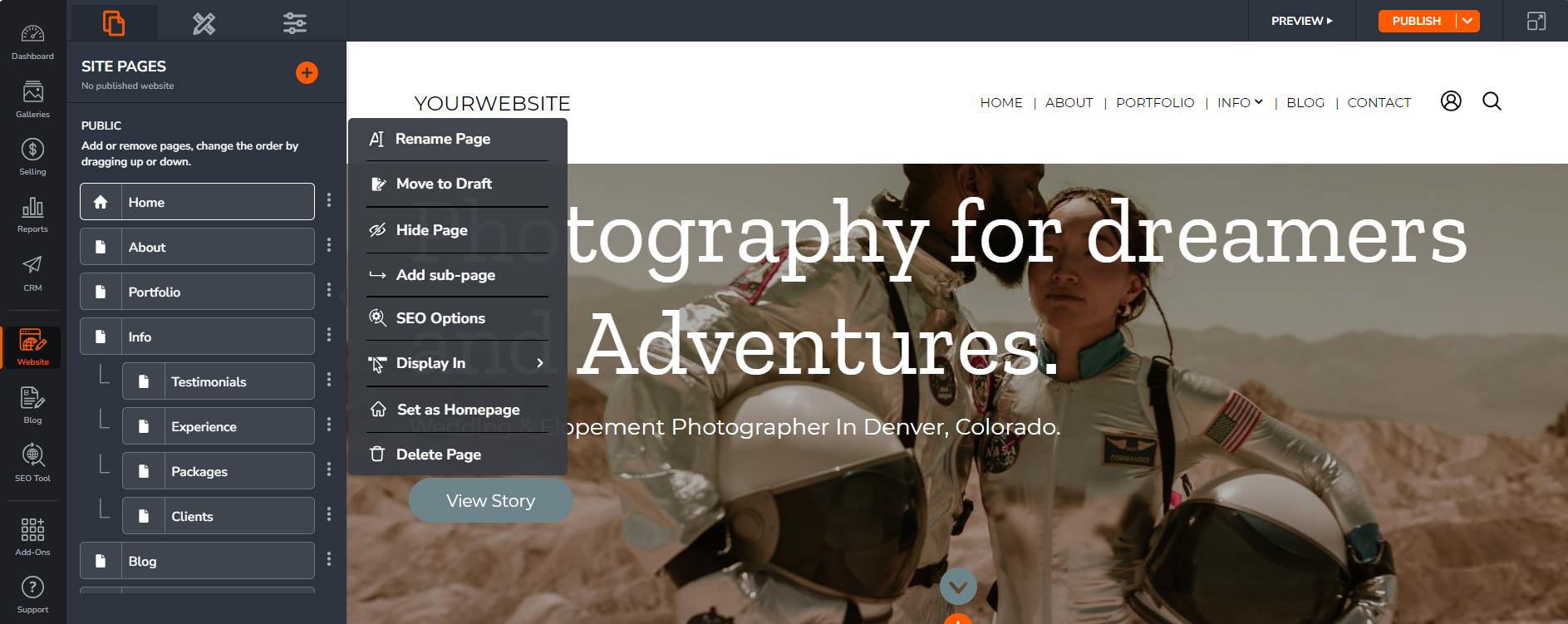
BlueHost’s website builder editor, scoring 7.3, is designed for ease of use, catering to both beginners and advanced users. It offers a section based drag-and-drop interface, allowing users to easily add, remove, and customize elements on their website without needing to code. Users can choose from a wide range of templates and customize them to fit their brand, including adjusting layouts, colors, and fonts. Additionally, the editor provides access to stock photos, SEO tools, and responsive design features, ensuring websites look great on all devices and can rank well on search engines.
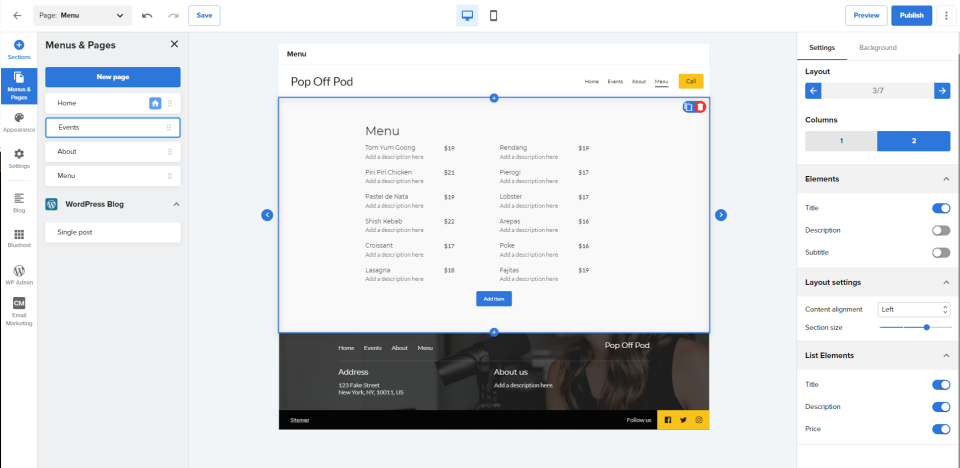
Mobile editor/app
 5.0
5.0
 8.5
8.5
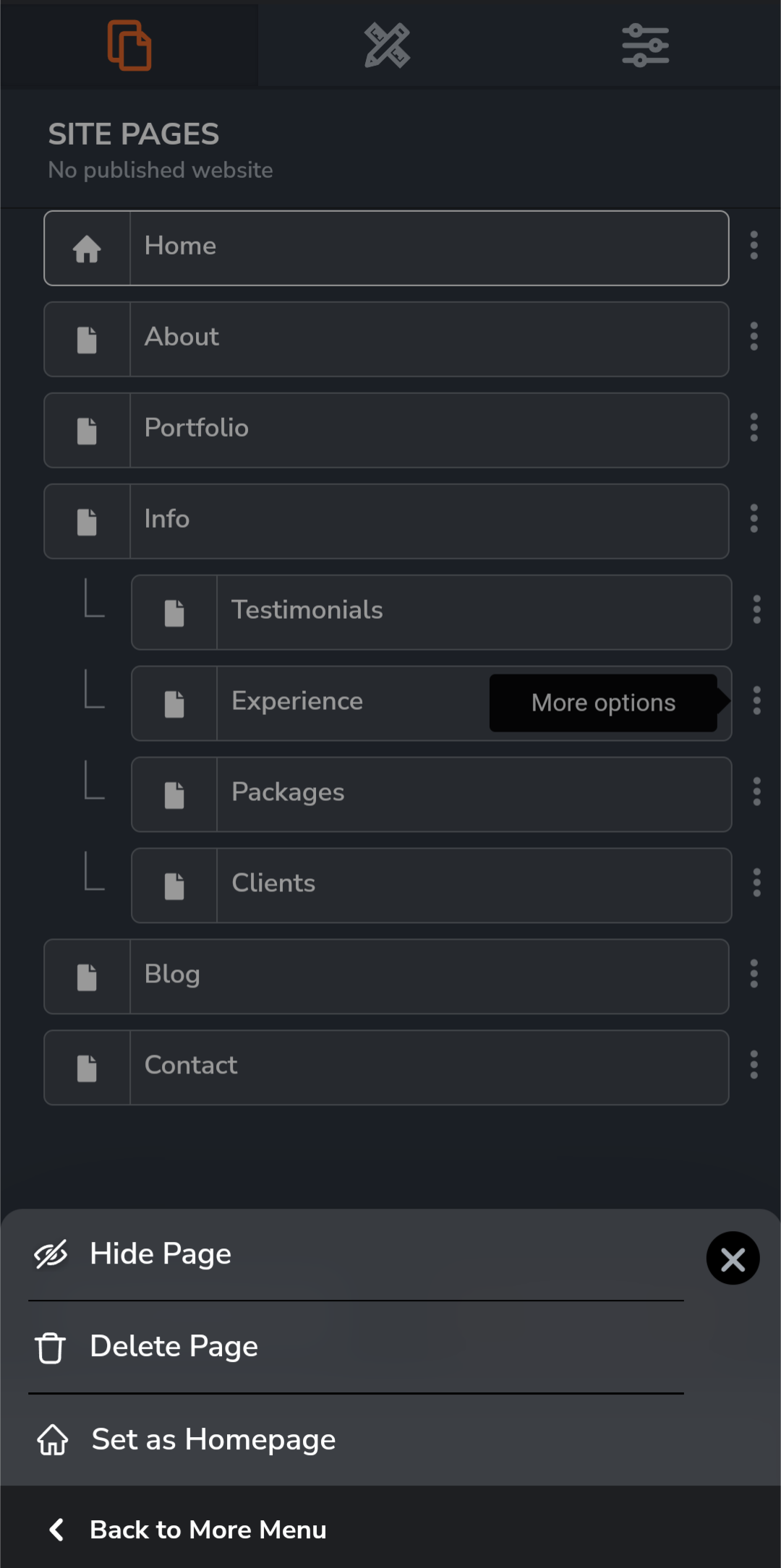
🏆
Winner: Zenfolio
. Both BlueHost and Zenfolio offer mobile capabilities for managing your website, but they cater to different needs and skill levels. BlueHost does not have a dedicated mobile editor app, but you can edit your website on a mobile browser, with some limitations. This might be a drawback for users who prefer to manage their websites on the go.
Zenfolio, on the other hand, offers a mobile editor app designed for Zenfolio account holders to manage their websites and galleries directly from their mobile devices. It includes features for receiving notifications, managing galleries, handling sales-related tasks, and showcasing photos through a client presentation mode. Additionally, the app supports uploading and editing photos, as well as accessing various tools for reports, CRM, bookings, and blog management, although some features may still necessitate desktop use for full functionality.
In summary, Zenfolio receives a higher rating due to its dedicated mobile app with comprehensive features, while BlueHost’s mobile capabilities are limited to browser-based editing.
Product testing options
Product Testing OptionsAssesses the options for trying out platform features before commitment.Score Components:
- Trial quality (40%): Extent and usefulness of the trial or free version.
- Feature accessibility (30%): How many features are available to test.
- Trial duration (20%): Length of the trial period.
- Ease of transition (10%): Smoothness of moving from trial to paid plans.
 6.2
6.2
 8.4
8.4
Overall Result
:
Zenfolio Wins
. Zenfolio scores 8.4 in product testing options, while BlueHost scores 6.2. Zenfolio offers a 14-day free trial, during which users can test premium features. BlueHost, on the other hand, does not offer a free or trial version, but users can test premium features within a 30-day refundable period.

|

|
|
|---|---|---|
|
Free Plan |
No | No |
|
Trial Duration |
No |
14 days |
|
Testing Premium Features |
Within 30-day refundable period |
During the free trial |
Price
PriceLooks at the cost-effectiveness and value for money of each platform.Score Components:
- Plan value (40%): What each pricing tier offers.
- Transparency and clarity (30%): Clearness of pricing structures.
- Flexibility of plans (20%): Range of options to suit different budgets.
- Hidden costs (10%): Additional expenses not included in the plan.
 7.2
7.2
 8.2
8.2
Zenfolio, with a higher price score, offers more value for money compared to BlueHost.

|

|
|
|---|---|---|
|
$0-$19 |
Basic ($15.99/month): Made for a simple website or blog, 1 website with 10GB SSD storage, Free CDN, Free Domain 1st year, Managed WordPress Hosting, Free SSL 1st year and Chat Support. Value for price: 6.5 |
Portfolio ($9.00/month): Basic entry-level with 15 GB photo storage, HD video, single-page website. Value for price: 6.0 |
|
$20-$30 |
Choice Plus ($27.99/month): Ideal for multiple sites needing storage, security, backups, 3 websites with 40GB SSD storage, Free CDN, Free Domain 1st year, Managed WordPress hosting, Free SSL, Free Domain privacy 1st year, Malware scanning, daily site backups are free for the 1st year with the purchase of a 12 or 36-month package. Otherwise, users are required to pay a one-time fee of $35.88 for backup services. Value for price: 7.5 |
PortfolioPlus ($23.00/month): Balanced features with 150 GB photo storage, HD video, single-page website. Value for price: 7.5 |
|
$30-$35 |
Online Store ($32.99/month): Great for all online selling, built-in eCommerce tools, 3 websites with 40GB SSD storage, Free CDN, Free Domain 1st year, Managed WordPress hosting, Free Domain privacy 1st year, Malware Scanning, Exclusive Theme Store, Store Analytics, Unlimited products, Secure Payment options, Bookings & appointments, Shipping labels, product search and filtering, daily site backups are free for the 1st year with the purchase of a 12 or 36-month package. Otherwise, users are required to pay a one-time fee of $35.88 for backup services. Value for price: 8.5 |
No offering at this amount. |
|
$35+ |
Pro ($39.95/month): Perfect for high traffic, advanced storage, security, 5 websites with 100GB SSD storage, Free CDN, Free Domain 1st year, Managed WordPress hosting, Free SSL, Free Domain privacy 1st year, Malware Scanning, daily site backups are free for the 1st year with the purchase of a 12 or 36-month package. Otherwise, users are required to pay a one-time fee of $35.88 for backup services. Value for price: 9.0 |
ProSuite ($40.00/month): Extensive features for photo and video, multi-page websites, blog, templates, and more. Value for Price: 9.0 |
location. As a result in rare cases the prices displayed here can differ from the ones you see on their
websites.
Hosting quality
Hosting
qualityExamines the reliability and performance of the hosting solutions.Score Components:
- Uptime (40%): Consistency and reliability of website availability.
- Speed (30%): Loading times and performance.
- Bandwidth and storage (20%): Sufficiency of resources provided.
- Data centers (10%): Quality and distribution of hosting infrastructure.
 8.0
8.0
 5.7
5.7
Winner: BlueHost
. BlueHost offers a range of hosting options with features designed to support websites at various stages of growth, from shared to dedicated hosting. Their hosting plans include technologies to ensure fast load times, such as SSD storage, CDN services, and Cloudflare integration. On the other hand, Zenfolio offers cloud hosting with storage ranging from 15GB to unlimited, but does not disclose any information about its uptime statistics or the locations of its data centers.

|

|
|
|---|---|---|
|
Do they offer hosting? |
Yes, offers a range of hosting options with features designed to support websites at various stages of growth, from shared to dedicated hosting. | Yes, with from 15GB to unlimited storage, with possibility to backup website’s content manually. |
|
Data Centers: |
6 data centers: Orem and Provo, Shanghai, Mumbai and Hong Kong, London | Zenfolio does not disclose the locations of its data centers |
|
Type of hosting: |
Managed WordPress Hosting | Cloud Hosting |
|
Uptime: |
99.9% | Zenfolio website builder does disclose any information about its uptime statistics |
|
Uptime Guarantee: |
Yes, 99.9% | Zenfolio does not have uptime guarantee |
Website Speed Optimization
Website Speed OptimizationEvaluates optimization of website loading timesScore Components:
- PageSpeed Score (30%): Google’s score indicating performance optimization.
- Loading Time (30%): The average time until a website is fully interactive.
- Mobile Optimization (15%): Optimization effectiveness for mobile devices.
- Resource Optimization (15%): Optimizing images, scripts, and other heavy resources.
- CDN Usage (10%): Use of CDN to enhance speed across geolocations.
 6.5
6.5
 5.2
5.2
🏆 Winner: BlueHost
Both BlueHost and Zenfolio prioritize website performance and page speed, but BlueHost takes the lead with its emphasis on server optimization and CDN use.

|

|
|
|---|---|---|
|
Focus |
Server Optimization, CDN |
Mobile responsive design |
|
Performance Tools |
Google Lighthouse, PageSpeed Insights |
Google PageSpeed Insights |
|
Key Strategies |
CDN, Server Optimization |
Mobile responsive design |
|
Load Times |
Varies widely, depending on optimization |
Varies depending on optimization |
|
Page Speed Scores Range |
Varies widely, depending on optimization |
Varies depending on optimization |
|
Core Web Vitals Improvement |
Emphasis on LCP, FID, CLS improvements |
No information provided |
BlueHost, a comprehensive web hosting service, also offers a user-friendly website builder. It places a strong emphasis on website performance and page speed, focusing on server optimization and the use of a Content Delivery Network (CDN). BlueHost’s approach to enhancing site speed includes server optimization and CDN use, leveraging its fast servers and CDN network to boost load speed. BlueHost also emphasizes improvements in Core Web Vitals, specifically LCP, FID, and CLS.
On the other hand, Zenfolio, a website builder designed specifically for professional photographers and visual artists, focuses on mobile responsive design for speed optimization. However, Zenfolio does not provide any information on their Core Web Vitals improvements. This lack of transparency may be a concern for users who prioritize website performance and speed.
Get a head start on website creation with AI
Create a custom website tailored to your business needs 10X faster with 10Web AI Website Builder!
Plugins and integrations
Plugins and integrationsMeasures the range and effectiveness of additional plugins and integrations.Score Components:
- Variety of options (40%): Range of available add-ons.
- Integration smoothness (30%): Ease of integrating plugins into the site.
- Quality of plugins (20%): Functionality and reliability of the options.
- Custom integration capabilities (10%): Support for custom or third-party integrations.
 9.1
9.1
 6.5
6.5
🏆 Winner: BlueHost.
With a score of 9.1, BlueHost leads the way with its extensive range of plugins and seamless integrations, primarily with WordPress. This allows for a wide range of customization options and access to thousands of themes and plugins. Zenfolio, with a score of 6.5, offers a focused set of plugins and integrations specifically designed for photographers, but BlueHost’s breadth and depth give it the upper hand.
Marketing Features
Design FunctionalitiesRepresents how well each platform allows for creative design and customization of websites.Score Components:
- Template Variety (30%): Range and quality of design templates.
- Customization (30%): Flexibility and options for design alterations.
- User Interface (20%): Ease and intuitiveness of the design process.
- Responsiveness (10%): Adaptability to different devices and screen sizes.
- Innovation (10%): Unique design features and tools.
 7.3
7.3
 6.1
6.1
🏆
Overall Winner: BlueHost
. BlueHost edges out Zenfolio with a slightly higher score, offering a more comprehensive set of marketing tools, especially in SEO and email marketing. Zenfolio, while strong in social media integration and analytics, falls short in SEO and blogging capabilities.

|

|
|
|---|---|---|
|
SEO Tools |
Yes, both built in and third party WordPress plugins integrations |
Yes, but limited |
|
Email Marketing |
Yes, with using the Creative Mail plugin |
Yes |
|
Blogging |
Yes, using WordPress blogging tools |
Yes, on higher plans |
|
Social Media Integration |
Yes |
Yes, Zenfolio enables sharing of websites via Facebook, Instagram, Twitter, and Pinterest |
|
Analytics and Reporting |
Yes, integration of Google Analytics and other WordPress plugins |
Yes, basic built-in analytics tools, and Google Analytics integration possibility |
|
Ads and Promotions |
Yes |
Yes, through its e-commerce capabilities, Zenfolio allows for the creation of custom discount coupons and automated marketing with Client Campaigns to boost sales |
Customer Support
Customer supportEvaluates the quality and availability of support options.Score Components:
- Response time (40%): Speed of support responses.
- Support quality (30%): Effectiveness and helpfulness of the support.
- Availability (20%): Range of support channels (phone, chat, email).
- Resource richness (10%): Quality of self-help and educational materials.
 7.6
7.6
 6.7
6.7
🏆 Winner: BlueHost
. Comparing BlueHost vs Zenfolio, BlueHost takes the lead in this category with its 24/7 customer support availability through chat and phone. BlueHost’s commitment to providing round-the-clock assistance ensures that users can get help whenever they need it, which is crucial for maintaining a smooth and uninterrupted online presence.
Zenfolio, on the other hand, offers comprehensive customer support through email 365 days a year and LiveChat from Monday to Thursday. While Zenfolio’s support is robust, it lacks the 24/7 availability that BlueHost provides. However, Zenfolio’s rich Support Center with self-help resources, including articles and video tutorials, is a valuable asset for users looking to resolve issues independently.
Security
SecurityLooks at the platforms’ security measures and data protection.Score Components:
- Data protection (40%): Safeguards for user and customer data.
- SSL and encryption (30%): Implementation of secure connections.
- Compliance (20%): Adherence to industry security standards.
- Regular updates (10%): Frequency of security updates and patches.
 8.3
8.3
 8.0
8.0
🏆
Winner: BlueHost
. BlueHost’s security measures are comprehensive, offering SSL certificates, regular backups, and additional features like SiteLock for malware scanning. They also provide 24/7 monitoring to promptly detect and respond to security threats, along with malware scanning and removal processes to protect websites from malicious software. This ensures a secure and reliable hosting environment for users.
Zenfolio also prioritizes security, providing SSL encryption for all its websites, watermarking to protect users’ work, password-protected galleries for controlled access, and cloud backup for additional data protection. However, it falls slightly short compared to BlueHost’s extensive security measures.
AI Capabilities
AI capabilitiesMeasures the effectiveness of AI-driven features and tools.Score Components:
- Automation efficiency (40%): Impact of AI on streamlining processes.
- Personalization (30%): AI-driven customization for users or customers.
- AI-Assisted design (20%): Role of AI in website design and functionality.
- Data analysis (10%): Use of AI in interpreting user data and analytics.
 1.5
1.5
 2.4
2.4

|

|
|
|---|---|---|
|
AI Builder |
|
|
|
AI Ecommerce features |
|
PhotoRefine.ai for efficient photo management |
|
AI content generation |
Possible through WordPress plugins |
|
|
Additional AI features |
|
|
🏆 Winner: Zenfolio
. Zenfolio, with a score of 2.4, offers an AI-driven eCommerce feature, PhotoRefine.ai, which assists photographers in managing their photo collections. This tool streamlines the process of sorting, grouping, and selecting photos, making it easier for photographers to prepare and sell their work online.
BlueHost, with a score of 1.5, does not have any built-in AI features. However, it supports integration with WordPress plugins, some of which offer AI capabilities. This allows for potential AI content generation, but it requires additional setup and is not a native feature of the platform.
User Management
User ManagementAssesses the platforms’ capabilities in managing user roles, permissions, and accessibility.Score Components:
- Role Customization (40%): Flexibility in creating and defining user roles and
permissions. - Ease of Management (30%): User interface and tools for managing users.
- Access Control (20%): Effectiveness of access control measures for different user
levels. - Scalability (10%): Ability to manage a growing number of users efficiently.
 4.4
4.4
 2.8
2.8
🏆 Winner: BlueHost
. BlueHost and Zenfolio have different approaches to user management.
- BlueHost supports multi-user management, but there’s no specific mention about the number of users or their roles and permissions.
- Zenfolio, on the other hand, allows only one user to edit and manage a website.
Due to the lack of detailed information about user roles and access levels for both platforms, it’s not possible to provide a comprehensive comparison in this regard. However, based on the available information, BlueHost seems to offer more flexibility in terms of user management.
Additional Features

|

|
|
|---|---|---|
|
SSL Certificate |
|
|
|
Custom Domain |
|
|
|
Free Custom Domain Included |
|
|
|
International Domains |
|
|
|
Mobile Responsive |
|
|
|
Page Speed |
|
|
|
Website Builder Mobile App |
|
|
|
Convert a Website To An App |
|
|
|
Website Analytics |
|
|
|
Multilingual Sites |
|
|
|
Multiple Users |
|
|
BlueHost vs Zenfolio: User Feedback
Users appreciate BlueHost for its comprehensive free offerings, including SSL, subdomains, and custom email, along with additional services like free domain registration and CDN. The platform’s intuitive interface and user-friendly website builder cater to both beginners and experienced developers. However, concerns arise regarding the significant price increase upon renewal, limited free website templates, and unresolved technical issues with poor customer support, hindering users’ ability to effectively manage their websites and businesses. Addressing these concerns could enhance overall user satisfaction with BlueHost.
Zenfolio is valued for its elegant and affordable site/portfolio designs, making it suitable for photographers looking to showcase and sell their work online. The Starter plan is praised for its value, though some users express a desire to upgrade to the Pro plan for its enhanced client interaction features and customizable marketing tools. Criticisms include dissatisfaction with the platform’s handling of photo albums and a desire for more privacy and faster loading times. Overall, Zenfolio is appreciated for its ability to organize and share professional photographs and files, despite some navigational and performance issues.
The making of this blog
We followed a clear, step-by-step process to write and research this article.
BlueHost vs Zenfolio: FAQ
Which platform is better for photographers, BlueHost or Zenfolio?
Can I sell products on both BlueHost and Zenfolio?
Which platform offers better customer support, BlueHost or Zenfolio?
How do BlueHost and Zenfolio compare in terms of website speed and hosting quality?
Are BlueHost and Zenfolio suitable for beginners?
Which platform is more affordable, BlueHost or Zenfolio?










